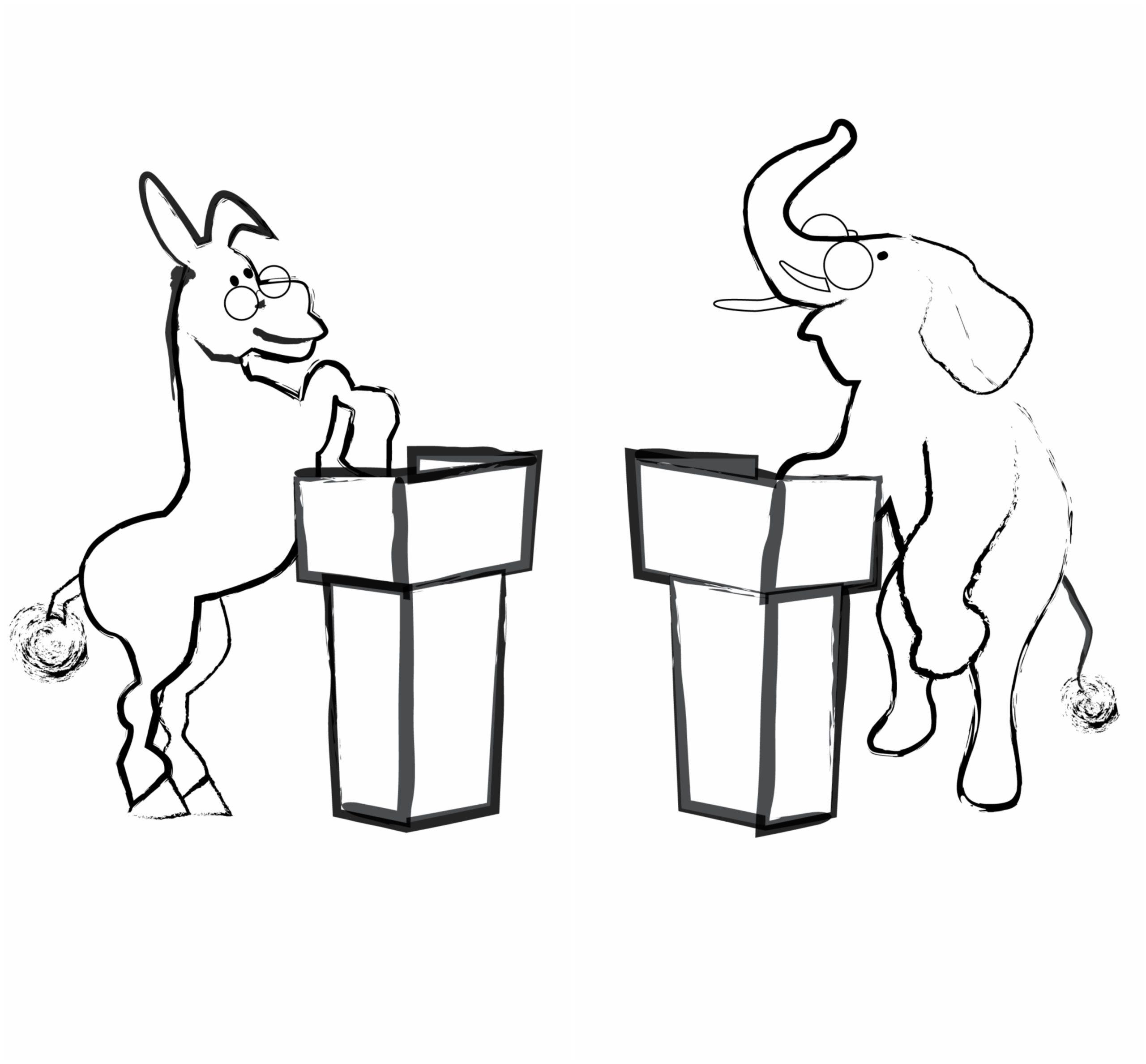“Economics and intervention overseas,” Zach Burns, ’18, president of the Saint Joseph’s University College Republicans said.
According to Burns, these two issues are likely to be the main sources of dispute that the College Republicans plan to present for Saint Joseph’s first mock debate on Oct. 3. The debate will take place in Forum Theater.
Meanwhile, the College Democrats are preparing to debate on issues such as diversity and inclusion, according to treasurer Julian Lutz, ’19.

Both student organizations invite students to attend the debate for free Chipotle, Insomnia Cookies, and thoroughly open-minded, informing discussions.
This debut debate between the College Democrats and the College Republicans presents the opportunity for students to make informed decisions for whom they chose to vote.
It is each organization’s goal to generate interest in politics within students and help them to formulate views and opinions within the political sphere.
“We’re just trying to gauge who’s interested and who’s not. We’re always open not only to Republicans but also to Libertarians and even Democrats,” said Burns. “Kids are conservative because their parents are conservative. And that’s not what we want, we want kids to be able to make their own decisions.”
As many college-age students vote in their first election this fall, they face what many are calling one of the most atypical elections in the past four decades. From a complete outsider victory in the Republican primaries to scandal at the Democratic National Convention, this election cycle has seen the rise and fall of many established Washington politicians.
Both college parties see it as their mission to bring as many informed student voters to the polls as possible.
According to Lutz, the College Democrats are firmly behind Hilary Clinton as their party’s candidate; however, they are not without Bernie Sanders supporters. The College Democrats will be holding an event later this week for students to register to vote. Alternatively, the College Republicans have a more even split of Donald Trump-supporting Republicans and Gary Johnson-supporting Libertarians.
Regardless of the views of the club’s members, each plans to keep an open-minded policy toward all view points and opinions in order to encompass the diversity of members within, according to Burns.
“If it’s in the news we like to discuss it [and] debate it,” said Burns, who was echoed by Lutz.
Despite the clubs imitating America’s two party system, each side is able to relinquish its political beliefs to further the mutual goal of increased political activity in students across campus.















































